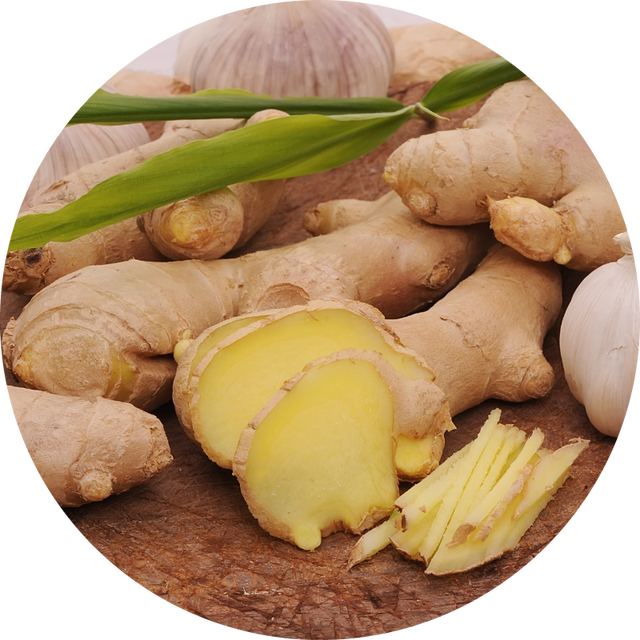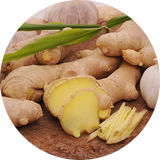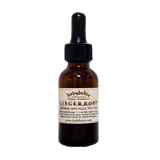- PLANT MEDICINE
- >
- Tinctures
- >
- GINGER ROOT TINCTURE
GINGER ROOT TINCTURE
Family: Zingiberaceae
Genus: Zingiber
Species: officinale Roscoe
Synonyms: None notable
Common Names: Ginger
Parts Used: Rhizome
Main Actions: Anti-inflammatory, anti-nausea, digestive stimulant
Other Actions: Antioxidant, antimicrobial
Description: Ginger is a perennial herb with thick, knotted underground stems (rhizomes) and lance-shaped leaves arising from the base. It produces yellow-green flowers with purple lips.
Tribal and Herbal Medicine Uses: Traditionally used for various digestive issues, motion sickness, and as an anti-inflammatory agent.
Plant Chemicals: Gingerols, shogaols, zingerone, volatile oils
Biological Activities and Clinical Research: Demonstrates anti-inflammatory, antiemetic, and gastroprotective properties. Some studies suggest potential benefits in managing nausea, vomiting, and arthritis.
Current Practical Uses: Culinary spice, herbal remedy for nausea, digestive complaints, and inflammatory conditions.
Main Preparation Method: Fresh or dried rhizome, as tea, extract, or in culinary applications.
Main Uses: Relieves nausea, aids digestion, reduces inflammation.
Properties/Actions Documented by Research: Anti-inflammatory, antiemetic, gastroprotective.
Other Properties/Actions Documented by Traditional Use: Antioxidant, antimicrobial.
Cautions: Generally recognized as safe when used in culinary amounts. Caution advised in individuals with gallstones or taking anticoagulant medications.
Traditional Preparation: Fresh or dried rhizome brewed into tea, or consumed raw or cooked in food.
Contraindications: Avoid in individuals with gallstones. Consult healthcare provider before use during pregnancy or while breastfeeding.
Drug Interactions: Potential interactions with anticoagulant medications. Consult healthcare provider if taking medications.
NOTE: Ginger extract may also be useful in delaying the onset and the progression of neurodegenerative disorders involving chronically activated microglial cells in the central nervous system (the neuron loss in Alzheimer's disease).
Recommended dosage: 2 - 4 ml daily (1 - 3 full droppers) taken in a small glass of water or juice 1 - 3 x daily on an empty stomach for better absorption.



